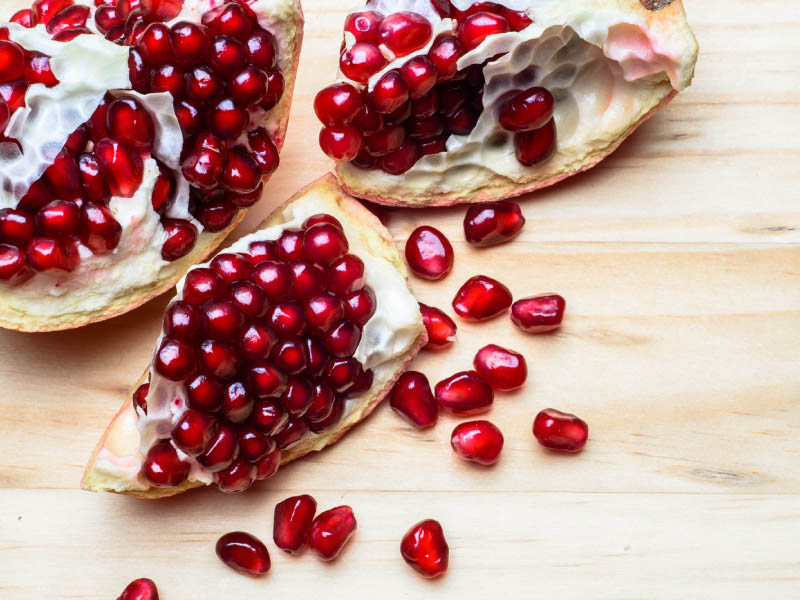Just how healthy are pomegranates?
By Vanessa Caceres, American Heart Association News

Pomegranates can be a little intimidating. Cutting one open requires some precision. And are they even worth the work to free all those little ruby red buds inside? Nutritionists think so.
"Pomegranates are high in dietary fiber and antioxidants," said Penny Kris-Etherton, the Evan Pugh University Professor of Nutritional Sciences at Penn State University in University Park, Pennsylvania.
The fruit's red color comes from plant pigments called polyphenols found in many plant-based foods that work as antioxidants in the body and help fight inflammation and aging. When you open a pomegranate, you find a bounty of red, round arils that have a sweet but tart taste. Inside each aril is a small seed. It's OK to eat the arils as a whole or stick with the juice and spit out the seeds. But don't eat the rind and white areas, called membranes, around the arils.
Half of a cup of arils has 72 calories, 16 grams of carbohydrates and three grams of fiber. Pomegranates also have a lot of folate, potassium and vitamin K.
Originally from Iran and India, the "jewels of autumn," as pomegranates are called, are actually considered a berry. They grow primarily in the Mediterranean, Middle East, South Asia and parts of Arizona and California. Even long ago, pomegranates were associated with abundance, fertility and luck.
Pomegranates are believed to boost heart health, although according to the National Institutes of Health, so far research on the berry is still limited. Kris-Etherton said the antioxidant content in pomegranates could help lower inflammation and, as a result, promote healthy arteries. How pomegranates affect heart disease, however, is not known and requires further study.
A 2017 review published in Pharmacological Research of eight clinical trials showed pomegranate juice reduced systolic and diastolic blood pressure. The effect remained even when consuming pomegranate juice at different amounts. The authors concluded it "may be prudent to include this fruit juice in a heart-healthy diet."
Results, however, are mixed on whether pomegranate juice helps lower cholesterol. Researchers in a 2019 review published in Complementary Therapies in Medicine examined 17 trials but did not find any significant effects on cholesterol. Researchers said it was hard to compare the trials because they were designed differently and did not use consistent amounts of pomegranate.
Keep in mind a few precautions before you go pomegranate crazy.
Because it can lower blood pressure, Kris-Etherton cautions to first check with your doctor if you take blood pressure medicine. The two together could lower blood pressure too much.
Also, pomegranates could slow the speed at which the liver breaks down some types of medicines. This includes cholesterol-lowering medication like statins. Pomegranates also may interact with the blood thinner warfarin, decreasing the blood-thinning effect and increasing the chance of clotting. To be safe, talk with a health care professional before regularly consuming pomegranate fruit or pomegranate juice.
A small number of people may experience digestive issues such as diarrhea from eating pomegranates, the NIH reports.
Although you probably won't eat the root, stem and peel, consuming too much of these parts of the fruit may not be safe.
For most people, pomegranates offer yet another tasty option to eat more fruit. At the store, look for pomegranates that feel heavy and have firm skin. Enjoy the fruit on its own, or add it to smoothies, soups and salads.
If you have questions or comments about this story, please email [email protected].





